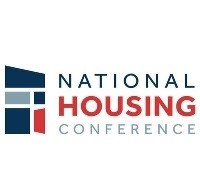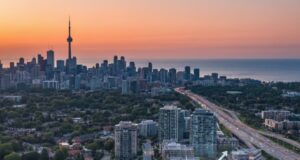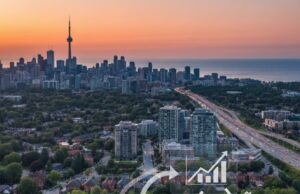WASHINGTON, D.C. – January 27, 2011 – (RealEstateRama) — After a bruising fast-paced winter thunderstorm yesterday left more than 10 inches of snow in certain parts of the Washington, DC area, many residents saw damaged trees, dangling wires, and power outages across the region. As most people have realized, snow and ice can prove dangerous, and can cause severe damage to properties and vehicles.
When a storm strikes, it is important to know what to do if your home is damaged or if you are involved in an automobile accident. Following are some guidelines from the National Association of Insurance Commissioners (NAIC), of which the DC Department of Insurance, Securities and Banking (DISB) is a member, to help you deal with a property damage claim or automobile accident.
“We understand that residents may be frustrated by last night’s storm, especially those who were trapped in their cars in heavy traffic,” said DISB Commissioner Gennet Purcell, “but we want to ensure that their frustration does not cloud their judgment when it comes to their home and auto insurance claims. By following these steps, they may be able to make certain that any additional damage may be minimized.”
What to Do If Damage Occurs to Your Home:
•Call your insurance company or agent with your policy number and other relevant information as soon as possible. Cooperate fully with the insurance company, and ask what documents, forms and data you need.
•Take photographs or video of the damage.
•Make the repairs necessary to prevent further damage to your property (i.e., cover broken windows, leaking roofs and damaged walls). Do not have permanent repairs made until your insurance company has inspected the property and you have reached an agreement on the cost of repairs.
•Save all receipts, including those from the temporary repairs covered by your insurance policy.
•If your home is damaged to the extent that you cannot live there, ask your insurance company if you have coverage for additional living expenses incurred while repairs are being made. Save all receipts to document these costs.
What Damage to Your Home Is Covered?
Damage caused by wind, wind-driven rain, trees or other falling objects, and the collapse of a structure due to the weight of ice or snow are all covered under most standard homeowners policies. Frozen pipes as the result of extreme cold might not be covered if the damage is due to negligence, such as failing to maintain an adequate temperature in the house when the ability to do so is there. Check your policy and call your insurance agent or company if you need clarification or have specific questions.
What Damage to Your Home Is Not Covered?
The following events are typically not covered by the standard homeowners insurance policy: interior water damage from a storm, when there is no damage to the roof or walls of your home; damage as the result of a flood; removal of fallen trees (if the trees do not land on and damage your home); food spoilage due to a power outage; and water damage from backed-up drains or sewers. Some insurers offer endorsements (i.e., additional protection that may be purchased) for certain coverage not covered under the standard homeowner policy. Check with your agent or company to determine your needs.
What to Do If You Are in an Automobile Accident:
•Call the police.
•Obtain the following information: the names, addresses, telephone numbers and driver’s license numbers of all persons involved in the accident and any witnesses.
•Record the time, date, location, road conditions, make and year of vehicles involved, apparent damages and injuries, and your version of what happened.
•Call your insurance agent or company to report the incident as soon as possible. Ask your agent what documents, forms and data you will need.
•Take notes each time you talk with your insurance company, agent, lawyers, police or others involved in the situation. Write down the dates, times, names and subjects you talked about, as well as any decisions or promises made.
•Ask your insurance company if you have coverage for a rental vehicle if your car is not drivable. Save all receipts and bills, including those from renting a car or having your car towed or stowed.
Contact DISB at (202) 727-8000 or disb.dc.gov if you have a dispute with your insurer about the amount or terms of the claim settlement, or if you need further information.
This information was made possible by the National Association of Insurance Commissioners (NAIC), a voluntary organization of the chief insurance regulatory officials of the 50 states, the District of Columbia and five US territories. For more consumer information visit InsureUonline.org.
Contact:
Michelle B. Phipps-Evans
Supervisory Public Affairs Specialist
(202) 442-7822















